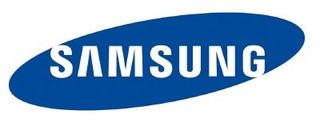Samsung: Second-Gen 10nm (10LPP) Process Is Ready For Production

Samsung announced that the second-generation 10nm FinFET process, called “Low Power Plus,” has been qualified and is ready for production.
Small, But Important Improvements
The LPP generation is an iteration of the existing 10nm Low Power Early (LPE) process, which has been used by chips such as the Qualcomm’s Snapdragon 835 and Centriq 2400, as well as Samsung’s own Exynos 8895.
The new process generation brings improvements of either a 10% increase in performance, or a 15% reduction in power consumption. The improvement isn’t a large one, but considering how much Moore’s Law has slowed down lately, a 10% increase in performance year-over-year isn’t too bad, either.
“With our successful 10LPE production experience, we have commenced production of the 10LPP to maintain our leadership in the advanced-node foundry market,” said Ryan Lee, Vice President of Foundry Marketing at Samsung Electronics. “10LPP will be one of our key process offerings for high performance mobile, computing and network applications, and Samsung will continue to offer the most advanced logic process technology,” he added.
Future Generations
After the 10LPP node, Samsung will adopt another 10nm process generation called 10LPU. The company previously announced it at the same time as it announced the fourth-generation 14nm process, 14LPU. However, despite the similar names, the 10LPU generation will be die-shrink and cost-saving process, similar to the 14LPC node, whereas 14LPU will be a high-performance process technology. It’s unclear whether another 10nm generation will follow after this, in parallel with the company’s 7nm generation.
Speaking of 7nm, Samsung still plans on using extreme ultraviolet (EUV) lithography for its 7nm process. That would be a first in the industry and quite the breakthrough, because it would allow Samsung and other chip makers to manufacture 7nm and smaller chips more easily. The EUV lithography technology has been studied since the '90s, but chip makers agree it should finally arrive in the next few years.
Stay on the Cutting Edge
Join the experts who read Tom's Hardware for the inside track on enthusiast PC tech news — and have for over 25 years. We'll send breaking news and in-depth reviews of CPUs, GPUs, AI, maker hardware and more straight to your inbox.
Most Popular




